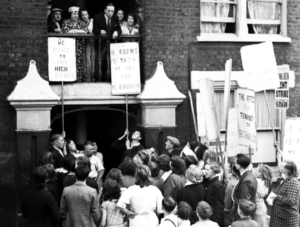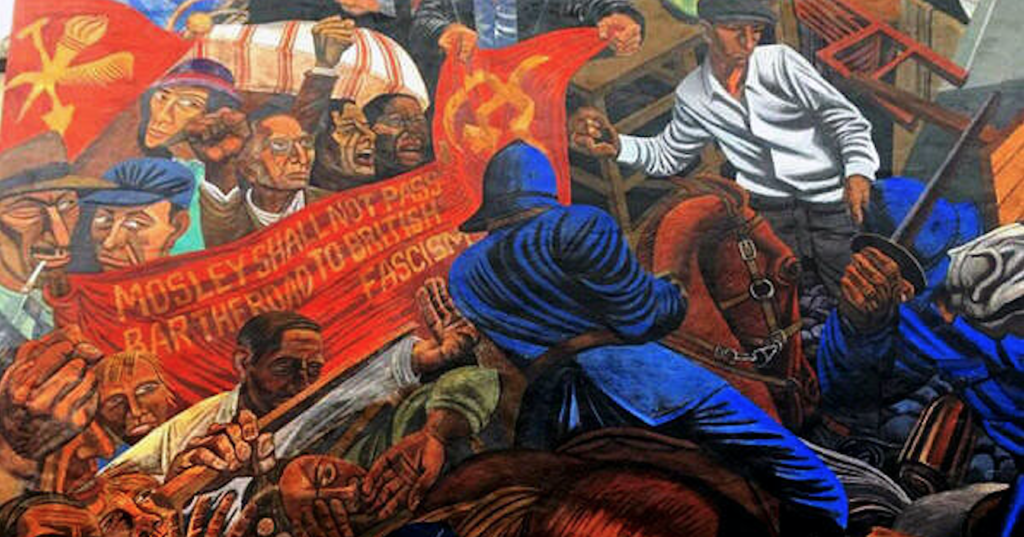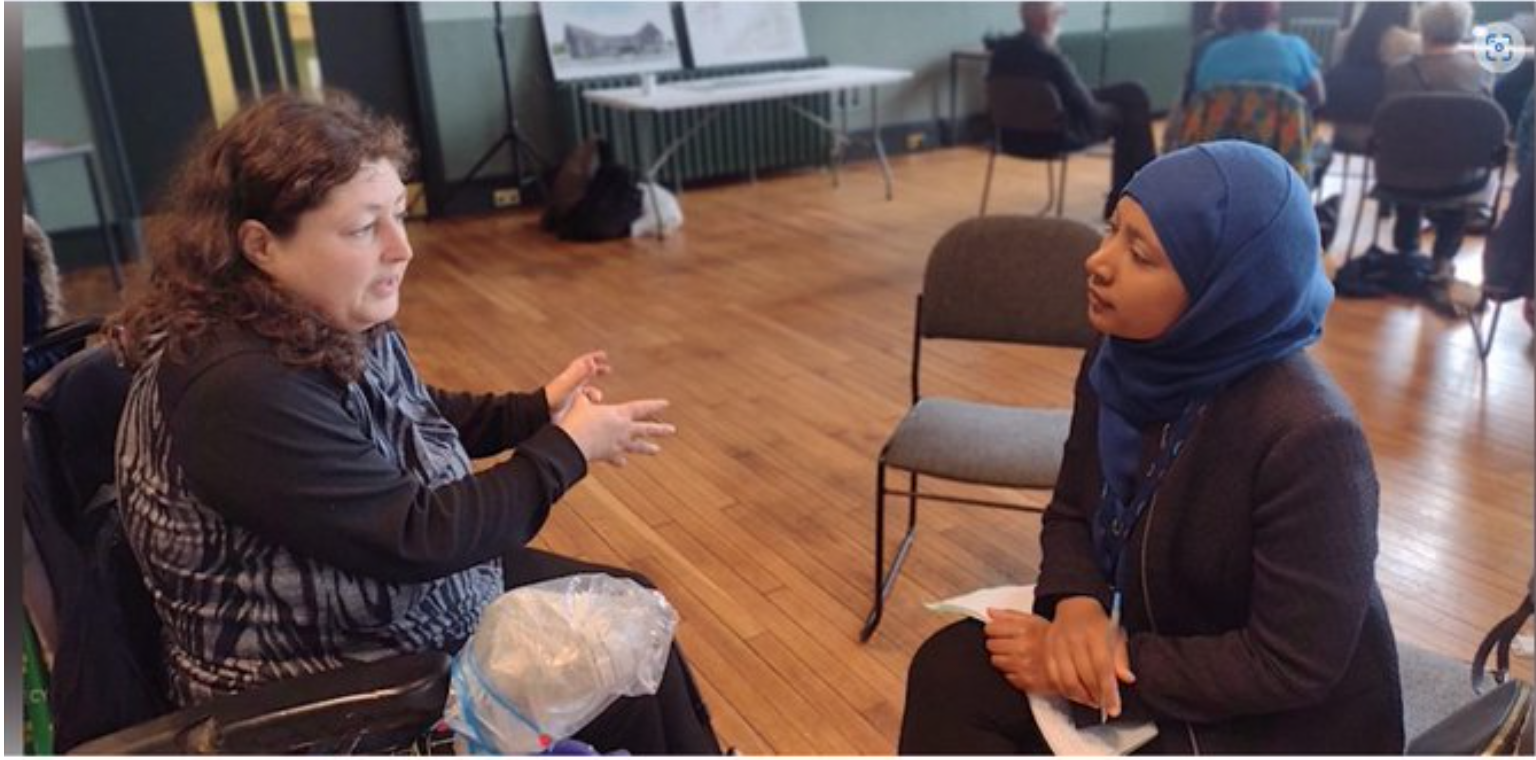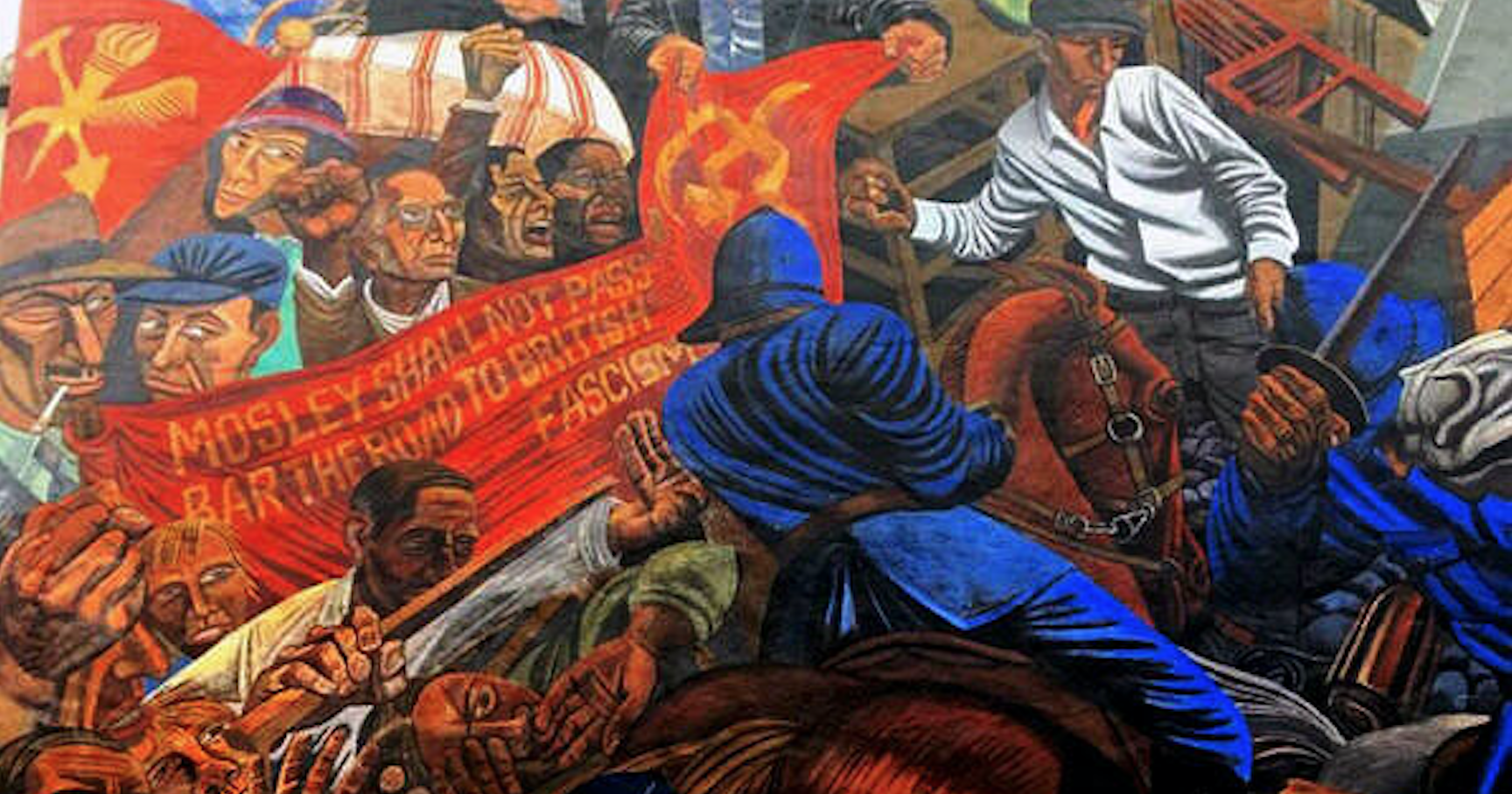By Paul O'Connell (@pmpoc)
It may be controversial, to some, to compare the language and policies of the British government towards refugees with the language of “1930s Germany”, but in truth there are enough parallels between the 1920s and 1930s and our present era of crisis to merit some comparison. There are also important lessons for us to learn from that period.
In particular, for those of us concerned with protecting and improving the lives of our class in an era of ceaseless austerity and crisis; while also fighting against the siren calls of right wing reaction, that seek to scapegoat minorities for the crises of the system.
The violent protests outside a premises temporarily housing refugees in Knowsley in February this year was just the highest profile of a series of such protests. What it showed us, clearly, is that faced with decades of falling real wages, gutted public services, and unaffordable housing, large sections of the working class are angry - and rightly so.
But it also showed us that a small, but well funded and organised, layer of committed racists has been successful in propagating a message that pins the very real ills experienced by working class communities on refugees and racial minorities. Looking back on the 1930s, both in Britain and Germany, this is, unfortunately, nothing new.
The question of how we respond to this is crucial, and in that regard Phil Piratin's Our Flag Stays Red provides a crucial account of how the working class organised in the 1930s to resist the rise of Oswald Mosley and his fascists, and to fightback against the system that ground down and immiserated the working class.
Facing fascism in London’s East End in the 1930s
Piratin was a communist, trade unionist, MP (1945-50) and one of the main organisers of the “Battle of Cable Street”, where the organised working class in London prevented a major march by Mosley and his British Union of Fascists (BUF), and in Our Flag Stays Red Piratin tells the story of the years of work that went into cutting “the ground out from under the fascists’ feet”.
His account focuses on Stepney in London, which he notes was a deprived, working class area where life was “grim”. In this and other such areas the deepening economic crisis of the time led to much fear, resentment, and anger about a lack of adequate jobs, decent housing, or benefits.
As Piratin notes, Mosley and the fascists increasingly sought to scapegoat immigrant communities, in particular the Jewish community, arguing that the reasons “British workers” could not get decent jobs or housing, was because of Jewish or other migrants.
In this way, Mosley’s antisemitic conspiracies chimed with those of fascists in other countries, such as Germany, who mobilised a narrative shot through with false allegations and misinformation, to turn the widespread anger of the people against minority groups. There are, of course, clear parallels with the many smaller groups around the world today who share their messaging about refugees, “unvetted military aged men”, and attacks on “our women and children”, to direct anger towards refugees.
An important insight from Piratin's book is that to understand what was going on he attended a rally organised by the fascists in East London. While there was a hard core of Mosley’s men there, Piratin was struck by the fact that many of the 1500 strong crowd were “ordinary working class” people, some of whom he knew personally, and some were even wearing trade union badges as they marched with Mosley's men.
This was a decisive moment for Piratin - the conclusion he and others drew from that experience was that while it was right to confront Mosley and his people resolutely, and with force if need be, it was crucial to understand and counteract the appeal their ideas had within the wider working class. Piratin concluded that
“above all these people, like most in East London, were living miserable, squalid lives. Their homes were slums, many were unemployed. Those at work were often in low-paid jobs. Therefore we urged that the Communist Party should help the people to improve their conditions of life, in the course of which we could show them who was really responsible for their conditions, and get them organised to fight against their real exploiters”.
In short, the answer for Piratin and others was to not simply rail against the symptoms, but to work to address the root causes.
Tenant organising as antifascist strategy
A concrete example of what this meant is given in the book, when Piratin recounts how, having built a reputation for supporting tenants to defend their housing rights, he was approached about two families that were about to be evicted from their homes. When Piratin and his comrades arrived, they discovered that the heads of both families were members of the BUF and active Mosley supporters, but that the BUF had no interest in helping them with their housing issues.

Despite the political affiliation of some of the tenants, Piratin and others worked with the families and their neighbours, they barricade the buildings and successfully resisted both the bailiffs and the police, keeping the families in their homes. Piratin notes that after this successful fight, the news spread like wildfire around the area and “BUF membership cards were destroyed voluntarily and in disgust”.
Piratin details how he and his comrades made many mistakes during this period, and how it took time for them to identify housing as a central issue, and, just as importantly, how their work became about helping tenants to organise and mobilise for themselves. This led to the establishment, in 1937, of the Stepney Tenants Defence League (STDL), who organised against the systemic slum-landlordism of the time.
The STDL fought many battles with bailiffs, police, and landlords, some long and bloody, but in the end, through consistent organisation and empowerment of tenants and working class communities, they delivered a string of victories. The success of the STDL was instrumental in the establishment of the National Tenants Federation (NTF) which helped organise mass strikes around the country, including one involving 50,000 council tenants in Birmingham in 1939.
Piratin notes that during these years of sustained organisation, even in the midst of economic depression and with the drums of war beating, “hundreds of thousands of folk, who had mildly carried the burden placed on them, not only rebelled, but began to see who were the exploiters and their real enemies”. Through deep community organising, hundreds of people gained the confidence to organise themselves, and to fight back against landlords, and the system that produces and sustains landlords.
One of the lessons Piratin draws from this period is that while the Battle of Cable Street exhibited the immense unity of the working class in the face of racism and fascism, it was the hard, long-term work in working class communities that "cut the ground out from under" the fascists’ feet. This included understanding, working with and winning over people whose desperate and degraded conditions may have seen them won over, in part, to the easy answers of the right.
The Enduring Lesson of ‘Our Flag Stays Red’
There are in Piratin’s book, and the episode he so engagingly narrates, important lessons for us in Britain today. There is a wealth of official reports that confirm what each of us already knows: Britain is staggeringly unequal, with the majority of people struggling with falling real wages, substandard and unaffordable housing, public services gutted for profit, and the spiralling cost of living. At the same time, the number of billionaires in Britain has grown over the last three years, and their share of income has increased exponentially.
In this context of decimated living standards and insecurity, much like in the 1930s, working class people and communities are angry - and rightly so. Just like in the 1930s, there are some who will seek to direct this anger at minorities, and in this way distract attention from the system and the wealthy British who are at the root of the social problems we face. It’s for this reason that the media and all the main political parties lend support to the narratives of the far right, and bluster about “small boats” crossing the Channel, when the actual causes of our problems are much closer to hand.
What Piratin’s experience tells us, is that if we are to successfully tackle this rising tide of reaction, we have to break with the empty moralism, exacerbated by a culture of online politics, of dismissing people as “fascist”, simply because their misdirected anger has seen them swept up in anti-refugee sentiment - the same anti-refugee sentiment that has been expressed and validated by all the “respectable” faces of British public life, for years.
Instead, learning from Piratin and the generation of Cable Street, we have to be to the forefront in working class communities, confronting the systemic crimes of landlordism, resisting the repressive face of the state in the form of bailiffs and police, and fighting in work places and communities for workers’ rights and public services. We must be first to show people that the people most responsible for the horrendous conditions we, the working class, are confronted with did not arrive via small boat, but arrived via Eton, Oxbridge and Westminster.
In an observation that chimes with Piratin's account, the Egyptian Marxist Samir Amin noted a few years ago that in the absence of positive utopias, oppressed and marginalised peoples would turn to reactionary ones. It is the role of all of us, trade unionists, socialists, housing and community activists, to be engaged daily in our communities. To build strong, united working class communities so that the politics of reaction never takes root.
The appalling scenes in Knowsley in February should, then, be a wake up call. But in a very serious sense. Simply throwing the term "fascist" around or bunkering down in communities of online rage and indignation will not impact the root causes of our unfolding crisis. Instead, we need to be active organisers in our communities, making it clear that divided we will continue to sink beneath the weight of a brutal system and venal ruling class - but that a united working class can rise together.
Paul O'Connell is a socialist organiser and legal scholar at SOAS. His interests include Marxism and law, socialist strategy and popular education. He is convenor of 'The Beehive' a Manchester based political education project.
Read: Our Flag Stays Red (pdf)
This article was made possible due to the support from the Miliband Lipman Trust.
13 May 2023





